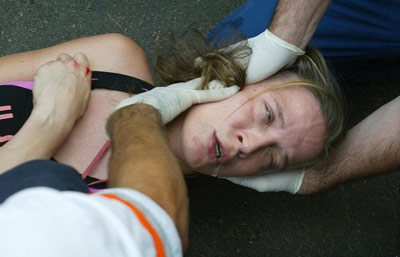
Amphetamine overdose symptoms can become fatal.
Drug overdose can occur in an instant and in the most severe cases can lead to fatal results. Amphetamine overdose is much like any other drug overdose. On the milder side, the user may just feel sick and the symptoms of overdose may wear off in time but on the most severe side of the pendulum, the user can suffer fatal consequences which can never be turned around.
Amphetamine overdose symptoms can sometimes be difficult to recognize because many of the symptoms of overdose are actually internal and cannot be seen on the outside. Regardless, when amphetamines are taken in excessively high doses or when amphetamine is used repeatedly there is an increased risk of overdose occurring.
The symptoms of amphetamine overdose include:
- Extreme restlessness
- Anxiety and heightened paranoia
- Tremors or seizures
- Confusion or difficulty concentrating
- Hallucinations or irrational thoughts
- Panic
- Nausea, vomiting or severe diarrhea
- Chest pain, heart attack or stroke
- Increased blood pressure
- Rapid heartbeat
Most of the time, amphetamine overdose will result in the user acting paranoid, delusional or otherwise very confused. When these symptoms are left untreated, there are many risks involved such as becoming permanently stuck in a state of psychosis, acting out violent or otherwise irrational behaviors or committing suicide. Amphetamine overdose also has a serious risk of causing heart attacks or strokes which can lead to deadly consequences if not immediately treated.
Treatment for Amphetamine Overdose
The best course of treatment for amphetamine overdose is to seek emergency medical attention by calling 911. If you suspect that you or someone you know has taken a potentially dangerous dose of amphetamines, call for help immediately! Do not let the scare of potentially being in trouble keep you away from seeking help if you suspect that an overdose has occurred.
Treatment is available but will depend on the type of amphetamine that was taken, the severity of the overdose and the symptoms and the speediness of medical attention. There are some drugs that can be used to help counteract the effects of amphetamine and to place less stress on the heart and cardiovascular system which is at greatest risk when it comes to amphetamine overdose. Additionally, treatment can involve ensuring that the patient is not a risk to himself or to others in the event that psychiatric problems arise during the recourse of the amphetamine overdose.
